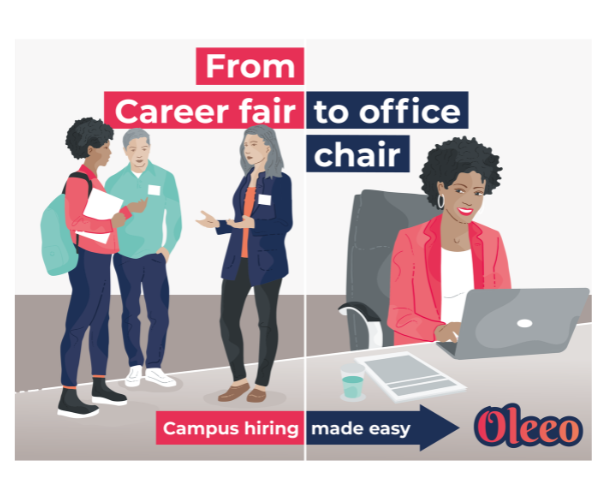Purpose of This Guide
As a faculty member, you can support the career aspirations of your students and graduates and complement the work of career services offices on your campus. Helping students in their job and internship searches can sometimes raise unanticipated legal or ethical issues, and this short guide is intended to provide you with guidance in areas that you may encounter. Please note that this guide is not all encompassing: You should contact your institution’s legal counsel if you have concerns on how to address a particular issue.
The National Association of Colleges and Employers (NACE), the leading source of information on the employment of the college educated, provides a set of ethical standards for guiding job and internship searches and the hiring process. The Principles for Ethical Professional Practice are based on two basic precepts: maintaining a recruitment process that is fair and equitable; and supporting informed and responsible decision making by candidates.
These broad principles encourage all those engaged in career advising and recruitment, e.g., students, employer representatives, faculty, and career services staff, to:
- Practice reasonable, responsible, and transparent behavior;
- Act without bias;
- Ensure equitable access;
- Comply with applicable local, state and federal laws, and
- Protect confidentiality of students’ career and recruitment-related information.
Note that complying with an employer request to recommend or rank student candidates may present a conflict of interest. As agents of the institution, in general, faculty should put the interests of students ahead of the interests of employers when responding to requests for information or referrals; in addition, any information provided must be based upon facts.
CANDIDATE REFERRAL
Employers may contact you to request the names of students who would be good candidates for internship and job opportunities. At first glance, it may seem harmless to provide the names of your best students. However, there are some potential legal and ethical pitfalls. By identifying individuals for employment on a “regular” basis, you and your institution could be subject to liability if you do not comply with all equal employment opportunity laws, which prohibit discrimination on the basis of an individual’s protected classification, such as their race, age, gender, sexual orientation, disability, national origin, or gender identity.
Guidance: If you receive a request for student referrals, the initial request from the employer should be sent to the college career center so that the position can be posted openly for all qualified candidates. If the opportunity is broadly posted, then it is generally acceptable for you to encourage students to apply for the position as well. Be mindful, however, that if you do choose to encourage students to apply, you should not limit such encouragement to only one class of individuals, or you could potentially expose yourself and the educational institution to a claim for discrimination.
Rationale: We are required to maintain an environment of equal employment opportunity and act in a fair and nondiscriminatory manner without regard of a student’s race, gender, gender identity, ethnicity, sexual orientation, religion, national origin, disability, age, economic status, or any other classification protected by federal, state, or local law. Publicizing opportunities through the career center helps ensure that all students have access to the opportunity, prevents confusion by providing employers and students with one point of contact on campus, allows the career center to build a recruiting relationship with the employer, and helps protect students from employers whose practices may not meet your institution’s recruitment or workplace standards, if any.
REFERRING CANDIDATES of Diverse BackgroundS
Employers may ask for your assistance with their efforts to recruit students from underrepresented backgrounds.
Guidance: You should immediately contact the career center to inform it of such a request. Based upon your institutions policies and procedures, you may also make announcements in class, post signs in your department and notify relevant student organizations, e.g., societies of Hispanic or black engineers, women’s organizations, or LGBTQ groups. You should also refer the employer to your college's diversity and inclusion office, if one exists. The diversity and inclusion office may be authorized to provide a list of the members of a requested population. You should not identify any specific individuals based upon their race or perceived race or background.
Rationale: It may be acceptable for you to assist employers in reaching out to diverse student groups, but you have an obligation to provide a system where all students have access to information about career opportunities, not just those you happen to know. There are other legal implications that may be at issue with regard to such requests; consequently, before you provide any information, you should contact the career services center to determine any requirements or limitations.
PROVIDING REFERENCES
Guidance: If you are asked by an employer to provide a written or oral reference for a student, either you or the school must have prior written authorization from the student, and you should provide information that is based on facts, not conjecture, and not on personal information unrelated to the student's qualifications for the job in question. If you are unclear of what you can and cannot share, contact your career services office for information and direction. NACE’s sample faculty reference letter template provides general guidance that may be useful.
Rationale: You may expose yourself and your institution to legal liability if you share protected students’ information without their permission, or limit a student’s opportunities through opinion or speculation or by sharing irrelevant information.
OTHER RESOURCES
Check with your career services office for additional resources that can assist you in assuring a hiring process that is free from discrimination and provides equal opportunities to all qualified students.
Reviewed by the 2020 Principles for Ethical Professional Practice Committee.



